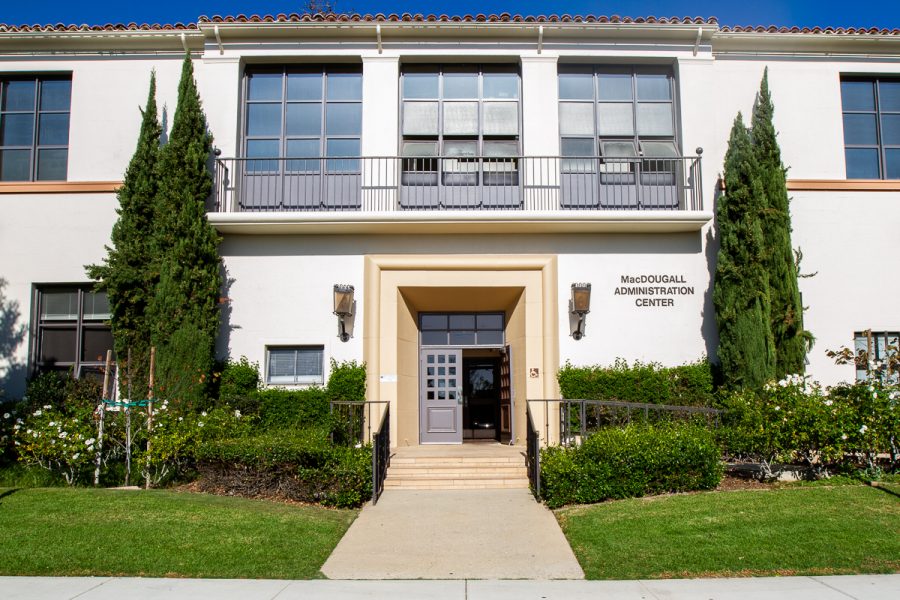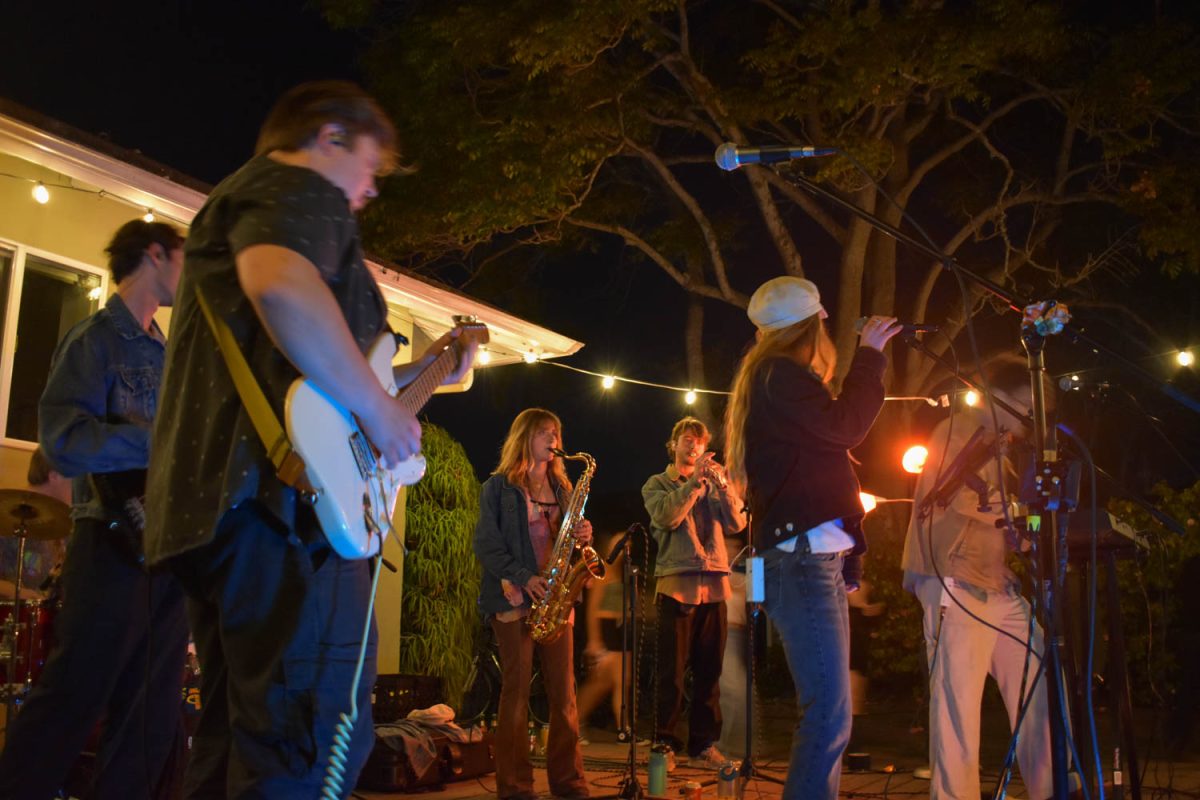The Student Senate is concerned that it will lose more than $10,000 in funding next year to the administration.
At issue is the amount of funding the senate will receive from the Student Activities Pass, which most students pay $5 for as part of their registration bill unless they opt-out using the “Pay my Bill” section on Pipeline.
Last year, the senate had received 40 percent of the revenue from the activities pass, which amounted to about $25,000 Fall 2017 and about $18,000 Spring 2018. The other 60 percent went to the administration’s Co-curricular fund.
Senate President Josh Villanueva met with Executive Vice President Pamela Ralston in early October to finalize the amount of revenue the senate would receive from the activities pass this year. Although a verbal agreement was made that the same revenue proportions would continue this year, Villanueva says he received a strong impression from her that the administration intends to increase its share of the revenue to 70 percent next school year — which Villanueva says could severely impact the senate’s ability to fund club grant requests and finance other student activities.
Ralston acknowledged that she met with Villanueva, but avoided answering a direct question on whether the administration was considering increasing its portion of the revenue.
“Prior to the start of the 2018-19 academic year, conversations about the budget allocation included changing the allocation given the increased costs of the events and programming the fee’s revenue support…We will continue to examine the use of these dollars, we will work in consultation to determine how best to allocate them,” she said.
Christopher Johnson, who is a student senate advisor, an associate dean and the manager of the Co-curricular fund, denied the administration was considering increasing its share of the revenue.
“There are no current plans to change the structure of the Co-curricular fund,” Johnson said in response to the question.
In an email Johnson sent to Villanueva late Fall 2017, Johnson told him that receiving only 60 percent of the activities pass revenue for the Co-curricular budget would leave the administration unable to pay for all the events it planned on funding. Johnson also appeared to be unaware that the senate had organized a referendum in Spring 2017 to raise the student activities pass fee by $4 and have that increase fund the senate, as he recommended the senate put on the exact same referendum for the same purpose in the 2018-2019 school year. Johnson now says budget adjustments have been made so that the administration can support most of the programs it did before, but did not provide documentation to support his statement.
SENATE STRUGGLES WITH FINANCES
Senate President Villanueva said that before the senate received the activity pass funds, it only had $3,500 at most in revenue each year that it raised from its twice-annual Merchant’s Bazaar to use for all club grant requests in the entire year, which led to a lot of wasted time during senate meetings arguing about how to use the money. With the new funding, the group intends to provide each club with a maximum of $400 each semester, host a Student Appreciation event and provide general financial support for student activities, as detailed in the group’s Activities Fee Fund budget.
The person in charge of the senate’s finances, Vice President of Finances and Operations Kenny Igbechi, estimates the senate will receive $43,500 in revenue this school year. However, this estimate was based on his impression that the senate would only receive 30 percent of the activities pass revenue instead of the 40 percent it received last year.
“We recognize that the projection is off because we fought back and we are receiving 40 percent again so it will be subject to change,” Igbechi said.
The estimate was also made without the senate knowing how much money the group has this semester. The senate does not have access to the money in their accounts with Amy Collins, another of the senate’s advisors, acting as a filter between the senate and the Cashier’s Office. Not one of the senators has direct access to the Simplar system, which is where the Cashier’s Office records the money in the senate’s accounts.
Igbechi went to Collins in the summer to ask for how much money the senate had, but although Collins has access, she was unable to assist him at the time, and Igbechi remains uncertain about how much money the senate has. Villanueva says he has been trying to get direct access to the Simplar system, but has yet to obtain access.
Igbechi also said Johnson never gave him guidance on how to manage the senate’s budgets, even though Johnson is one of the senate’s advisors. Johnson confirmed he did not provide Igbechi guidance, and was not aware if Igbechi had been given any guidance on the budgets at all other than by Villanueva. Although Collins gave him general information on how the budget should be managed, only Villanueva provided him with specific advice on how the money should be spent.
A LACK OF TRANSPARENCY
When The Channels interviewed Johnson about how the administration has used and is using the activity pass revenue in its Co-curricular fund, he was not able to provide numbers for how much revenue the Co-curricular fund received from the activities pass for the last few semesters. He directed The Channels to the Cashier’s Office for that information.
Nicole Hubert, student finances manager, said because Johnson was the owner of the the funds, she discussed the information with Johnson for him to relay back to The Channels.
The Channels had scheduled an interview with Johnson for Thursday earlier that week, but upon receiving the questions he would be asked, which included questions about the revenue from the past few semesters, Johnson canceled the meeting.
“…I saw your questions and I do not have time to find the detailed information you are asking for,” he wrote, adding he was attending a conference with the Student Senate that weekend, could not take the time to “fish through email” and had more pressing matters regarding student safety to deal with.
He did not respond to any of the questions by publication time, including the ones about the activities pass revenue received in 2017, which Hubert indicated she had already discussed with him. The Channels is still uncertain how much revenue the Co-curricular fund is receiving from the student activities pass and about how much of the money is being spent for the events Johnson said it is funding, which included the Outstanding Student Awards Banquet and the Leonardo Dorantes Memorial Lecture Program. However, Villanueva was able to provide The Channels with what appears to be the 2017-2018 Co-curricular budget, which Johnson sent him in an email late Fall 2017.
THE DISPUTE COULD HAVE BEEN AVOIDED
A referendum in Spring 2017 had passed a $4 student activities pass fee increase with about 72 percent of the college-wide vote, but the administration never raised the fee. If the increase had been made, the administration would not have had its share of the revenue cut and student government would have received twice as much money as it is currently receiving with its 40 percent share, as all the funds from the increase would have gone to student government.
Villanueva said that the administration told the senate the fee was never raised because at the time of the referendum, the activities pass was transitioning from a voluntary purchase at the Cashier’s Office to an automatic purchase when students paid for classes unless they opted out of it.
The senate apparently never got a satisfying answer from the administration on why that would prevent the fee from being raised after the transition was over.










![Milton Alejandro Lopez Plascencia holds a flag showcasing the United States and Mexico on Feb. 7 in Santa Barbara, Calif. “It’s heartbreaking to see what is happening all across the country,” Lopez Plascencia said. “I [want] my voice to be heard by the community.”](https://www.thechannels.org/wp-content/uploads/2025/05/MGSImmigration-1-1200x800.jpg)




